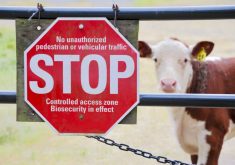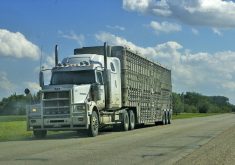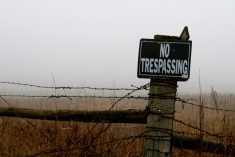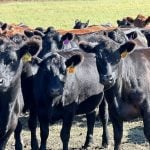Glacier FarmMedia – The growing issue of on farm protests threatening the health and safety of animals is the subject of a private member’s bill recently introduced to the House of Commons.
Conservative Party of Canada agriculture critic John Barlow introduced the bill with the goal of punishing those responsible for on farm protests.
Why it matters: Protesters are increasingly entering livestock barns and taking animals, potentially introducing disease and disrupting the livestock.
Read Also
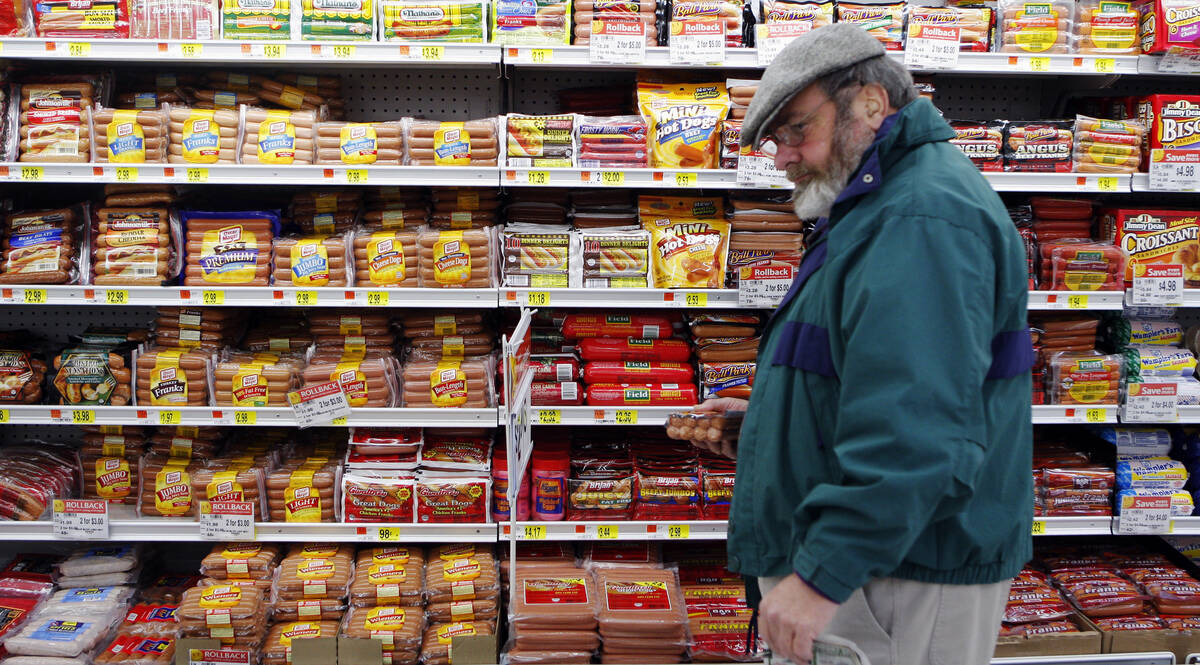
Canada seventh-most influential country on agri-food
Report from Dalhousie University and MNP shows Canada ranks seventh among G20 countries on agri-food influence.
“There are a lot of variables (farmers) have to deal with, commodity prices, now a carbon tax and illegal blockades,” he said. “Having to deal with activists and protesters coming on your property and into your barns and onto your land is just one thing that we don’t think that they should have to deal with,” he said.
If passed, the bill would amend the Health of Animals Act and make it an offence to enter a place where animals are kept without permission if doing so could result in the animals being exposed to disease or a toxic substance.
Ontario has proposed similar legislation.
It has the support of the Canadian Federation of Agriculture, Canadian Meat Council, Canadian Pork Council, Chicken Farmers of Canada, Egg Farmers of Canada and Turkey Farmers of Canada.
“We are not trying to muzzle free speech. This is nothing against legal protesting,” Barlow said. “You can do that on public land, that is fine. But when you cross that line onto private property, we have an issue.”
The bill would also put in place a financial penalty and potential jail time for people involved in threatening on-farm animals. A fine of up to $50,000 or up to two years of imprisonment is included for individuals, while every person other than an individual — essentially meaning organizations — who contravene the new law would be subject to a fine of up to $500,000.
“A lot of times these protesters don’t really understand the potential consequences of when they are endangering animal health,” said Barlow.
“The feeling that we had was, you know, a lot of these groups are now very well funded, very well organized by large organizations like PETA and the World Wildlife Fund,” he said. “To just have a small fine for an individual is one thing, but I think the groups that are organizing this and putting our food supply and the biosecurity of our supply chain at risk, there has to be consequences for them as well.”
Lisa Bishop-Spencer, director of brand and communications for Chicken Farmers of Canada, said producers take a lot of pride in raising safe food for Canadians.
“We have a government recognized on-farm food safety program that strictly enforces biosecurity measures on every farm across the country,” she said. “It’s a mandatory program. It’s an enforceable program. It’s a third party audit program.”
Anything that helps to strengthen animal health laws is good for the chicken farmers, according to Bishop-Spencer, who said she is encouraged people within the House of Commons are recognizing the issue because it is a substantive threat to farmers.
“I can’t tell you specifically how many on farm trespassers there have been as a result of activism as we call it, but I can tell you that it has increased,” she said. “We’re always hearing about it, it was becoming a new method by which attention could be drawn to those who wish animal agriculture didn’t exist.”
She added it’s a concern the organization hears about weekly from farmers.
While private member bills often don’t pass, Barlow is hopeful for some bipartisan support in the Liberal minority government.
“It’s also raising some awareness that our farmers, our producers, processors, they care more than anyone in the world about the health of their environment, their animals and their operations,” said Barlow. “This is also an opportunity for us to highlight the work that they’re doing to kind of change the narrative that, you know, Canadian farmers and agriculture do better than anybody in the world. And we should be proud of that, not attacking them.”
“We’re all worried about the safety of our food. And we want to make sure it’s protected.”






